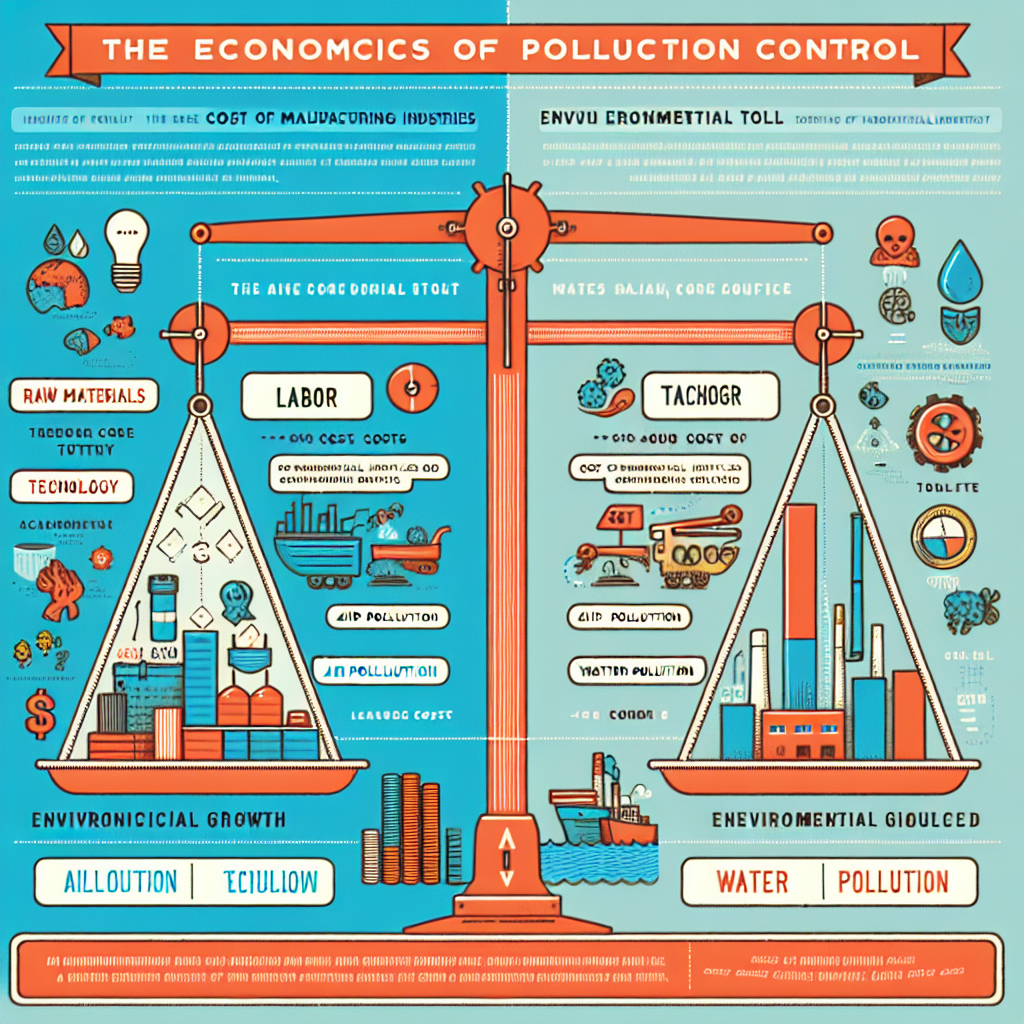When it comes to pollution control, there are many factors to consider. From air quality monitoring to waste management, environmental regulations play a crucial role in protecting our planet. Let’s take a closer look at the economics of pollution control and the costs, benefits, and trade-offs involved.
Air Quality Monitoring
One of the key components of pollution control is air quality monitoring. By tracking pollutants in the air, we can better understand their sources and effects on human health and the environment. While the costs of air quality monitoring systems can be significant, the benefits far outweigh them. By identifying areas with high levels of pollution, we can take targeted action to reduce emissions and improve air quality for all.
Waste Management
Another important aspect of pollution control is waste management. Proper disposal of waste prevents harmful substances from contaminating our air, water, and soil. While implementing effective waste management practices may require upfront investments, the long-term benefits are undeniable. Cleaner environments lead to healthier communities and lower healthcare costs associated with pollution-related illnesses.
Environmental Regulations
Environmental regulations play a critical role in pollution control by setting standards for emissions and waste disposal. While some industries may view these regulations as burdensome, they are essential for protecting public health and preserving natural resources. By enforcing environmental regulations, governments can ensure that businesses operate responsibly and minimize their impact on the environment.
In conclusion, while there are costs associated with pollution control measures such as air quality monitoring, waste management, and compliance with environmental regulations, the benefits far outweigh them in the long run. By investing in sustainable practices now, we can create a cleaner and healthier world for future generations.

Leave a Reply